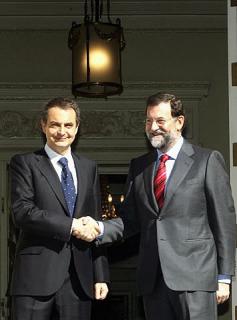How should governments prepare their country for the arrival of Nanotechnology? | Well there are two meanings of nanotechnology. The broader meaning is to do with working at nano-scale, generally to make existing materials gradually better. This kind is already going on in many countries and doesn't introduce any really new problems. It does raise importante issues, like possible toxicity of materials for example, but these are generally problems science has got used to dealing with. The other meaning of nanotechnology, the real meaning, involves building products from the bottom up to the top, molecule by molecule. We haven't arrived there yet and it'll probably be another 15-20 years before this kind of nanotechnology is with us. However this type of nanotechnology will be revolutionary. It will introduce a whole new set of problems, because we are presented with a completely new style of manufacturing and as such affect many companies in different sectors.
It could raise, or indeed solve, environmental problems, health problems, economic problems... But the biggest concern is its potential to be used in building weapons. If nations decide to build up military with this technology, we could risk a new arms race. A nanotech arms race would be much less stable than the old cold war arms race when it was a race with arms of mutual destruction - if one attacked so would the other one and they would mutually destroy eachother. But nanotechnology will allow weapons to be developed and improved so fast and easily transported, that we think that a nanotech arms race could get out of control and that would be much more dangerous. So what can governments do today? One thing is to learn and become familiar with both types of nanotechnology, understand that nantechnology is a big collection of fields and people have different definitions for it. There is no one easy answer to what do we should do about nanotechnology. It is important for policy makers to be focussed on what is coming and to learn and prepare. The most important type of nanotechnology is the second kind, molecular manufacturing, because it will have the capacity to produce a vast number of new products very quickly. And the effects could be quite disruptive to existing economies so that plans must be made in advance, it just won't work to find solutions at the last minute. So far there has been very little international discussion of these issues, debateis barely beginning. A group called the International Risk Governance Council based in Switzerland are trying to form a framework for international discussion of high risk issues, and nanotechnology is their primary focus right now. CRN is working with them to encourage international debate. CRN has always believed that nanotechnology will cross borders. It will be very easy to smuggle the technology and difficult to contain it in one area, so we think the wisest approach would be to create an organisation similar to the International Atomic Agency for nanotechnology so that countries developing nanotechnology can agree on how it should be used, inspection of weapons developments.... International treaties will be necessary and governments should start thinking and talking about this as soon as possible,
rather than leave it too late.
| There is increasing discussion and concern about the toxicity of nanoparticles in particular,and possible health and environmental impact of nanotechnology in general. Do you think these growing concerns could actually delay the progress nanotechnology could make? | It's possible. Especially if the developers and promotors of nanotechnology are not wise about how they do it. My advice to governments and companies in countries developing nanotechnolgoy is to be very open about risk. Don't make the same mistakes made by the genetically modified foods developers who went too fast and were too secretive about the risks, so that the public started to make up their own ideas, wonder, become suspicious etc. Some concerns were exaggerated, some weren't, but because the companies were just not communicating and there was no open dialogue, concern grew and in some cases here in Europe production of genetically modified foots was even banned. This could happend with nanotechnology too, so I would advise dialogue between public, companies, government and media, so that everyone undrestands what's real and what's not real in terms of risk. And be careful about overemphasising benefitis and ignoring the risks. Until now that has been one of the problems in the US. The government has promoted nanotech as all good, speaking about all the wonderful things it will do without mentioning the risks, but the public is more intelligent than that, and you can't fool people by telling them there's no danger. All technology has risks and benefitis.
So don't pretend no risks are involved because people won't accept it. It is very possible that public opposition could slow down the development of nanotechnology which would mean that some of the great benefits - health, agricultural, environmental, improved economies - might also be delayed. And that means the people will suffer unecessarily, people who could receive better health, better housing, better protection from environmental disasters ... won't get it if the technology isn't develped as quick as it could be. We want to see nanotechnology developed as quickly and responsibly as possible. Two tracks at the same time - one rapid development and a parallel track of understanding and cooperation, without one getting too far ahead of the other.
| Is molecular nanotechnology still the utopian end of a science, or is it already a real prospect? When do you think the prospect of molecular machines making bigger machines could become a reality? | The answer to the first half of the question is that it's both! It is certainly on its way to being developed. There is no specific program to develop it yet, that we know of, but there are smaller groups working on parts of it. The software for example for designing machinary at a a molecular level is being developed quite rapidly by Nanorex. The simluations on their website are atomically precise,
they aren't just pretty pictures. They use physics to determine how one atom will interact with another atom. Zyvex is working to build the tools that will be able to manipulate smaller and smaller units of matter. They can already build robots at micro level, but their goal is to get to the nano level. Universities are doing very impressive work, some in what is called vacuum state, machine phase,
without life or water, just working with those kinds of molecules at Rice University where teams have build tiny nanocars with wheels that roll and they say their goal is to build small nanoscale trucks that could carry materials to different parts of a factory. It's early days yet, but they are showing that it can be done. NYU has two groups investigating nanotechnology. One, led by Nadrian Seemon, is working on building shapes with DNA and programming DNA to create structures which could be a way to eventually use these DNA structures to put carbon atoms together and build diamondoide, crystallised carbon. That's going very fast and it's interesting what they are managing to build. Another NYU team is working with polymers at the nanoscale individual molecule level and also building devices at that level. So there's alot of work going on in many areas, and it isn't time yet for them all to come together. But with that work happening and with the increasing power of computing, we think that probably within 15 years and possibly 10 years, people will be able to put all these advances together and start manufacturing full products at the molecular level.
| If that is the case, is humankind really prepared to assimilate and administrate so much power? | That's the big question. I don't know. The power word there is the most important part of the question, because if you look at the history of humanity and the development of technology, we have gradually used technology to make war, to use power as force. When we were in tribes, one individual could kill another ind with a club or a spear. Then gunpowder came, so an individual could kill more faster, then came dinamite so you could make a cannon and kill lots of pople, then bombs that could kill hundreds, and atomic bombs that could kill hundreds of thousands. You could actually put it on a graph and see how the power that can be possessed by any one individual is rapidly increasing. So what we have to be concerned about is not necessarily the maturity level or desire for peace of the whole human race, but rather about the individuals. If a dangerous individual was to somehow be
one of the first people to possess this power of molecular manufacturing that would be very dangerous. So, we can't rely on the goodwill of all. There have to be mechanisms that will prevent the technology from falling in the hands of poeple that could do great harm with it. That is a challenge bigger than we have ever faced before. With nuclear weapons, nations could destroy nations, but individuals couldn't kill nations, because to create a nuclear weapon you need billions of dollars, big big factories, its
easier to monitor - satellites can tell us if countries are building these massive nuclear weapons or not. It was a hoax when we were told that Irak was building them and we should have known that and we did know that. You can tell - we know what countries are developing them now. But you wouldn't be able to tell with molecular manufacturing. Because the manufacturing capability could be in a box
that could fit on the top of this table. You could make a nanofactory the size of this room to make a bomb, or the size of a warehouse to make planes. Highly destructive, almost impossible to trace, and rapidly developing weapons. As soon as someone would produce a new weapon to keep ahead, someone else could improve on it. And that's our big challenge. As a human race, are we ready to join together to protect ourselves? We think it's time for us to act as a family and help eachother and protect eachother rather than fight eachother. Hippy philosophy perhaps, but I really believe that and I think it will be the biggest test we've ever faced
to find out if we are ready to meet this challenge.
| A NASA space lift, fuel cells, quantum computation, new, powerful semiconductors, busting cancer cells.... But as far your average person on the street is concerned, so far nanotechnology is only producing golf balls, new fabrics, bikes, glasses and cosmetics. To what extent have we been taken in by nanobuzz or hype? | There is a certain tendency to hype the benefits. And the funny thing is that when my organisation talks about the risks - and we try to talk about both - we sometimes get told by governments, organisations or companies that we are over-hyping the risks. We, on the other hand, think they hype the benefits, especially when we hear people are saying, wait a minute, I thought we were getting elevators to the moon and all I've got is a golf ball!. So it probably goes on on both sides. Hype isn't a bad thing as long as your honest - it's a way of getting people's attention.
Having said that, I wouldn't say that the actual benefits of nanotechnology have been over-hyped, although the expectations about how soon they might arrive may have been. But we don't think that we are over-emphasising or over-stating the dangers. If anything we have to restrain ourselves from discussing how serious we think the dangers are, because then people won't take us seriously. We have to talk in moderate terms so that we aren't marginalised and we want to have a voice in
this crucial debate.
| A big big chunk of R+D funds in countries investing in nanotechnology goes towards researching the application of this new technology for military purposes. Could this priority of governments condition the reach and social vision of nanotechnology in the medium term? | The US is developing materials for the army, and China is not going to sit back and watch. China seems to want to become the equal of the US economically and, eventually, military, and nanotechnology could provide them with the means to leapfrog forward. Whether or not China will become increasingly aware of this and so will start investing more money in nanotechnology because of that we do not know.
| Countries such as India, China and Israel seem to have taken nanotechnology very seriously indeed. Given the potential of nanotechnology, could this perhaps one day alter the international order? | Oh yes, quite quickly infact. Relatively small nations such as Israel, Brazil, Singapore... so that the power of the technology is such that it will transform economies very rapidly and shift balances of power. Given that the US today is the world's only super power, the US probably would rather stay number one. As far as we know, the US is not developing nanotechnolgoy for military purposes in secret, apart from materials for the US soldiers, they may be but we don't think so. India on
the other hand is. President of India who is a nuclear sicentist and in a recent speech he told indian scients they must develop nanotechnology because "nanotech is the future of warfare and India cannot afford to fall behind". India has tensions with Pakistans, and is next door to China. India is a large democracy and we hope that they can be trsuted. But imagine that in 10 years time the US discovers that a country is getting ready to develop arms with molecular manufacturing and the US gets worried that someone is going to get there first. By that time they'll have realised the potential of nanotech to shift the balance very rapidly. Will they allow the country to have the technology or will they preemptively attack to destroy capability? Until Irak, the US had never preemptively attacked another nation, but that war has set a precedent. This is one of the reasons that global agreemtents are so important.
| Do governments give enough priority to research into the possible effects of nanotechnology on the environment, poverty, health so that people will embrace the benefits of this new technology in a confident manner, rather than be repelled by it because of the enormity of the whole issue? | Right, the possible "yuck factor" which is what happend with the GM foods. Humanity has always had the fear that you shouldn't meddle with nature, so that the idea that there might be tiny robots which would enter your body, probably in capsule form, which would be able to find cancer, or unclog arteries, repair cartilege, repair brain damage, or beyond repair, enhance - give us better vision, better memory, faster thinking power. That sounds good to me, but other people can say no, it isn't natural. Especially in the US there's this religious conservative block which is powerful and is actively opposing the use of technology to improve the human body. You can fix disease, but don't go beyond that. So there will be a debate about that, and there should be. I'm not saying they're wrong, I think there needs to be open discussion and people should be allowed to decide for themselves. And it's important for the discussions to be conducted now, get the debate out in the open and have dialogue over the next few years so avoid people from panicking when the technology to do these things has already been developed and is available for use.
| One of your missions is indeed to create these kind of debates and get people talking and listening. Do tragic events such as Katrina or the Tsunami give you a chance to explain how, if developed responsibly, nanotechnology could help to repair the devastation caused? | Not so much with Katrina or the Tsunami, because those are such big disasters that we don't want to be seen as taking advantage of a terrible event to get our message heard. The things that we do talk about are the more chronic problems such as lack of nutrition, food distributions, poverty. 10.000 children die every day from starvation. 10,000 children! And it doesn't have to be that way. We have enough food on our planet, everyone could have enough to eat. So nanotechnology alone won´t solve this problem. Even if we use it to make better housing and better food production, technology alone won't solve the problem. Its people who have to solve the problem. We have to learn from where we are today, from the mistakes we have made and realise that what we're doing now isn't working. It's not right that a third of the World's population lives on 2 dollars a day. That's not right, it's even dangerous. Another chronic problem is human-caused global climate change - ice bergs are melting, sea levels rising, temperatures are increasing. The only technology which could be capable of reversing this is nanotechnology. It's the only technology with the planet-scale capacity to maybe deal with a problem as big as this one. If people perceive nanotechnology to be too dangerous, this means that we won't have the opportunity to deal with serious issues like the real, enormous problem of global climate change. And this means that in the future, if nothing is done countries like Bangladesh will disappear because of flooding. Parts of where I live in New York might be flooded. Many low-lying areas will cease to existe, economic consequences will be huge. And that might be prvented, but only if the nanotechnology is developed soon and peacefully.
| Last year CRN created a Global Task Force to study the societal implications of Nanotechnology and designed to run parallel to the Technology Roadmap for Productive Nanosystems undertaken by the Foresight Institute and Battelle. What stage is the Taskforce at in terms of work achieved? Is there interaction between the two groups? Is there still an opportunity for academics and professionals from the Spanish and Portguese-speaking countries to contribute to the project at all? | The task force was formed last August because we saw that technical progress was moving
ahead of the discussion of implications and potential policy recommendations. So we started with a small group. Now we have about 60 experts from all over the world and from all sorts of fields. People who understand the potential for major technological change will tell us how it will affect their particular area. We cooperate with the Roadmap people on an informal level, with conversations on an informal level. We exchange information with them and we support what eachother are doing. Their focus and ours are different and we have a joint understanding that we work in parralel and support eacother and inform eachother about our progress. As far as the task force is concerned, the first thing we chose to do was to define the concerns people had in all the different fields covered by our members that needed to be addressed. Our approach is to first fully understand the problems, before you start talking about solutions. So we have about 23 essays which will be be published in Nanotechnology Perceoption journal on March 24th. They will also be available online. And the second half will be published the first week of May. Once they are all available it will be apparant how much work and thought a number of very highly qualified and knowlegdable people have put into defning the problems as broadly as possible. Their works shows us that there can be no simple solutions - if you solve a solution in one area, you may be creating another one in a different area. We have to think of comprehensive strategies that take
all areas into account. The International Risk Governance Council have developed a theoretical
framework for risk management that I hope we'll be able to make use of as we move from the problem stage into the macro solution stage, and we will try to work with them to see how their frame can assist us. As far as new contributions are concerned, we would be happy to consider proposals from people wishing to contribute to the work of the Task Force at this stage either by actively participating in the work, or by helping with funding of activities etc.
|
|






